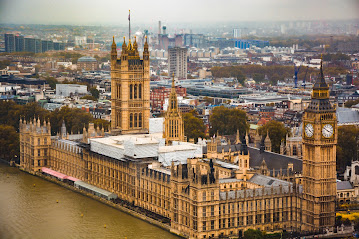The Birth of the Labour Party: Championing the Rights of the Working Class
In the annals of British political history, a significant event stands out as a turning point in the fight for workers' rights and social justice—the establishment of the Labour Party. Born out of the struggles and aspirations of the working class, the Labour Party has left an indelible mark on the UK's political landscape. Join us as we delve into the fascinating origins of the Labour Party and its enduring legacy in championing the rights of the working class.
The Seeds of Change:
At the dawn of the 20th century, Britain found itself grappling with the challenges of rapid industrialization, social inequality, and the plight of the working class. As workers endured long hours, low wages, and precarious conditions, the need for a political party dedicated to their interests became increasingly apparent.
The Birth of the Labour Representation Committee:
In 1900, amidst growing dissatisfaction with the existing political order, the Labour Representation Committee (LRC) was formed. This pioneering organization aimed to provide a unified political voice for the working class and secure parliamentary representation for their concerns. Comprising trade unions, socialist societies, and progressive individuals, the LRC laid the foundation for the future Labour Party.
The Founding Conference:
On February 27, 1900, the LRC held its historic founding conference in the Memorial Hall in Farringdon Street, London. The conference brought together delegates from various trade unions, socialist groups, and affiliated organizations. It marked a crucial moment in British political history—a coming together of forces committed to promoting workers' rights, social welfare, and economic justice.
The Representation of the People Act 1918:
A pivotal milestone in the Labour Party's journey came with the Representation of the People Act 1918. This legislation granted voting rights to a wider segment of the population, including many working-class men and, for the first time, some women. With an expanded electorate, the Labour Party seized the opportunity to enhance its political influence and amplify the voices of the working class in the corridors of power.
From Opposition to Government:
The Labour Party's ascent from a fledgling political entity to a significant force within British politics took time, perseverance, and strategic maneuvering. Over the years, the party steadily gained support, fostering close ties with trade unions and refining its policy positions to address the evolving needs of the working class. In 1924, under the leadership of Ramsay MacDonald, the Labour Party formed its first-ever government, albeit a minority one. This historic achievement demonstrated the growing electoral strength of the party and its capacity to effect change.
The Labour Party's Impact:
Throughout its history, the Labour Party has championed progressive policies aimed at improving the lives of ordinary people. From the establishment of the National Health Service (NHS) and the creation of the welfare state to landmark legislation promoting workers' rights, the party's impact on British society is undeniable. It has strived to reduce inequality, provide access to quality education and healthcare, and fight for social justice on multiple fronts.
Conclusion:
The birth of the Labour Party stands as a testament to the power of collective action and the determination to challenge social injustice. From its humble beginnings as the Labour Representation Committee to become a political force that has shaped the UK's political landscape, the party has remained steadfast in its commitment to fighting for the rights and interests of the working class.
As we reflect on the Labour Party's journey, it is crucial to recognize its enduring legacy in advancing workers' rights, promoting social equality, and advocating for progressive policies. The Labour Party's contributions to British politics have left an indelible mark, reminding us of the ongoing struggle for a fairer and more equitable society.
In an ever-evolving political landscape, the Labour Party's mission to champion the rights of the working class remains as relevant today as it was over a century ago. It serves as a reminder that through collective action, visionary leadership, and a commitment to social justice, positive change can be achieved, empowering individuals and communities and shaping a brighter future for all.
Spec






Comments
Post a Comment